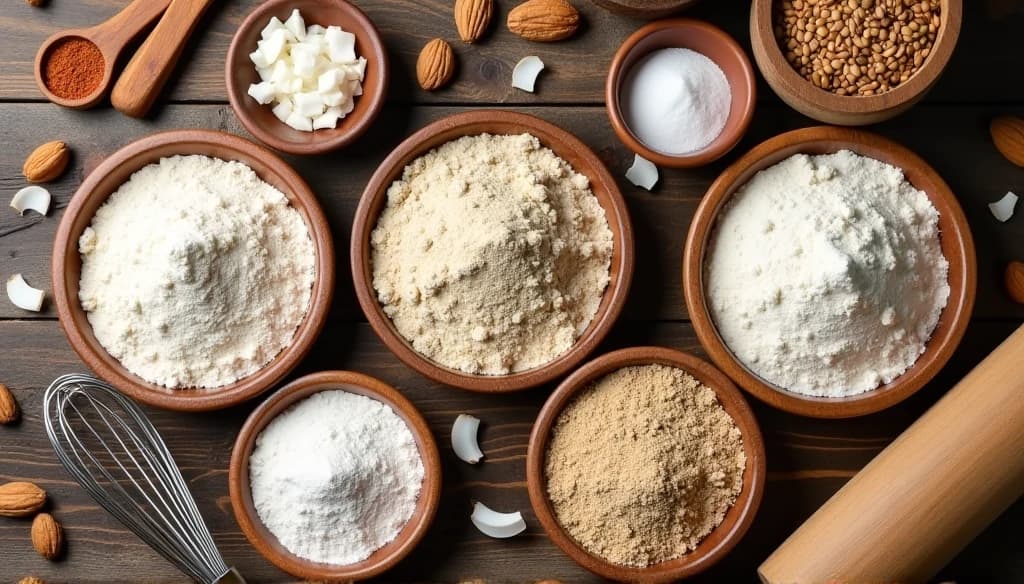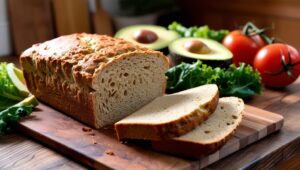Table of Contents
ToggleImagine this: You’ve committed to a ketogenic lifestyle, but the idea of giving up traditional baked goods feels like an impossible hurdle. Pancakes, bread, cookies—are they really off-limits? The good news is that keto flour can bring these treats back into your life while keeping you in ketosis. But with so many options, ingredients, and questions about cost, carb count, and substitutes, it can get overwhelming.
This guide breaks down everything you need to know about keto flour, including the best options, how to make it at home, and answers to questions like “Why is keto flour so expensive?” Let’s dive in!
What Is Keto Flour?

Keto flour is a low-carb alternative to traditional flours like wheat or all-purpose flour, specifically designed for ketogenic diets. These flours are typically made from nuts, seeds, or fibers and have significantly fewer carbs than regular flour. They allow keto dieters to enjoy baked goods without breaking their daily carb limits.
Keto Flour List: The Best Options for Your Baking Needs
When it comes to keto-friendly flours, there’s no one-size-fits-all. Each type has its own flavor, texture, and nutritional profile. Here’s a quick overview of the most popular keto flours:
| Keto Flour | Net Carbs (per ¼ cup) | Best For | Notes |
|---|---|---|---|
| Almond Flour | 2g | Cakes, cookies, bread | Mild flavor, slightly coarse texture |
| Coconut Flour | 4g | Pancakes, muffins | Absorbs a lot of liquid; use sparingly |
| Flaxseed Meal | 0g | Crackers, breads | Nutty flavor, high in fiber |
| Chia Seed Flour | 1g | Puddings, crackers | Gel-like texture when mixed with liquid |
| King Arthur Keto Flour | 4g | Bread, pizza crust | Pre-mixed blend, convenient for beginners |
| Sunflower Seed Flour | 3g | Cakes, muffins | Nut-free alternative, mild flavor |
| Oat Fiber | 0g | Adding bulk to recipes | Pure fiber; not used as a standalone flour |
Why Is Keto Flour So Expensive?
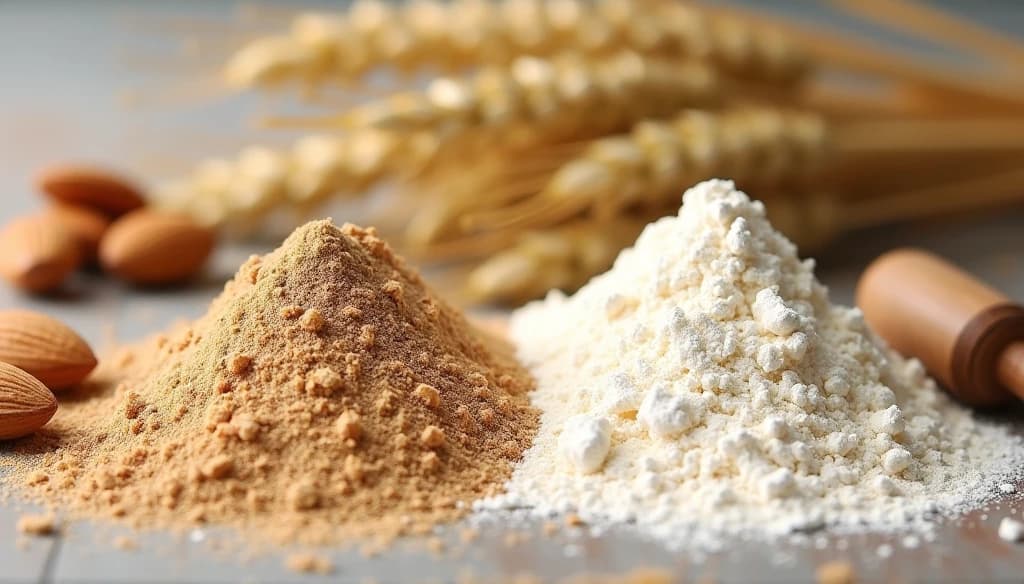
One of the most common complaints about keto flour is its price. Here’s why:
- Specialty Ingredients: Keto flours like almond and coconut flour require specific processing methods, which increase production costs.
- Smaller Market: Traditional flour is produced on a massive scale, making it cheaper. Keto flours cater to a niche market, so the production volume is lower.
- Nutritional Quality: These flours often contain high-quality, nutrient-dense ingredients like nuts and seeds, which are naturally more expensive.
If you’re looking for more affordable options, consider making keto flour at home (more on this below).
How to Make Keto Flour at Home
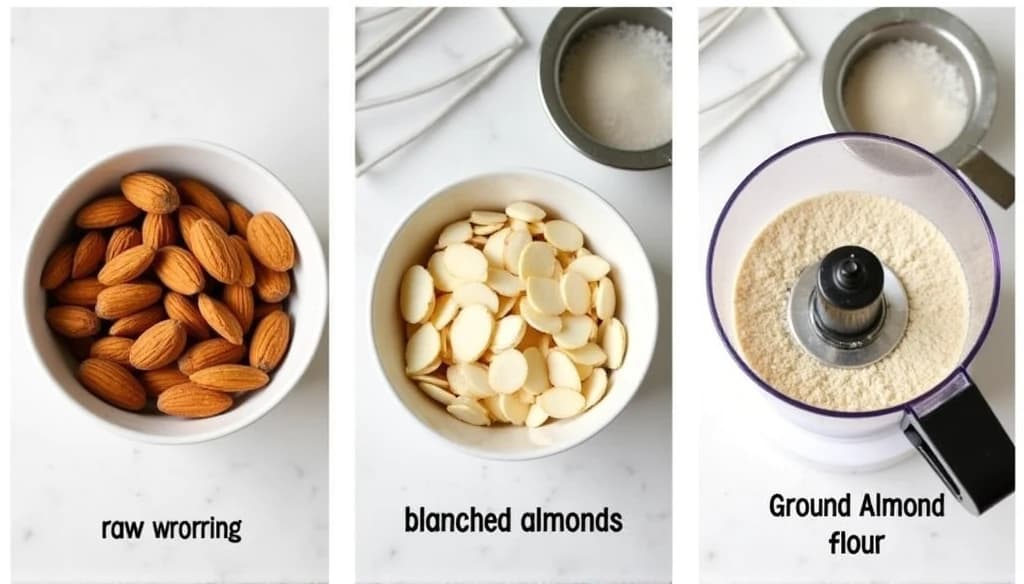
Making keto flour at home is not only cost-effective but also allows you to customize ingredients based on your preferences. Here are two simple recipes:
1. Homemade Almond Flour
Ingredients:
- 1 cup raw almonds
Instructions:
- Blanch the almonds by boiling them for 1 minute.
- Remove the skins and let the almonds dry completely.
- Grind the almonds in a food processor until you achieve a fine flour texture. Avoid over-grinding to prevent turning them into almond butter.
2. DIY Coconut Flour
Ingredients:
- 1 cup unsweetened shredded coconut
Instructions:
- Spread the shredded coconut on a baking sheet and bake at 200°F for 30 minutes to remove moisture.
- Blend the dried coconut in a high-speed blender until it turns into a fine powder.
- Sift the flour to remove any larger pieces.
What Flour Is OK on Keto?
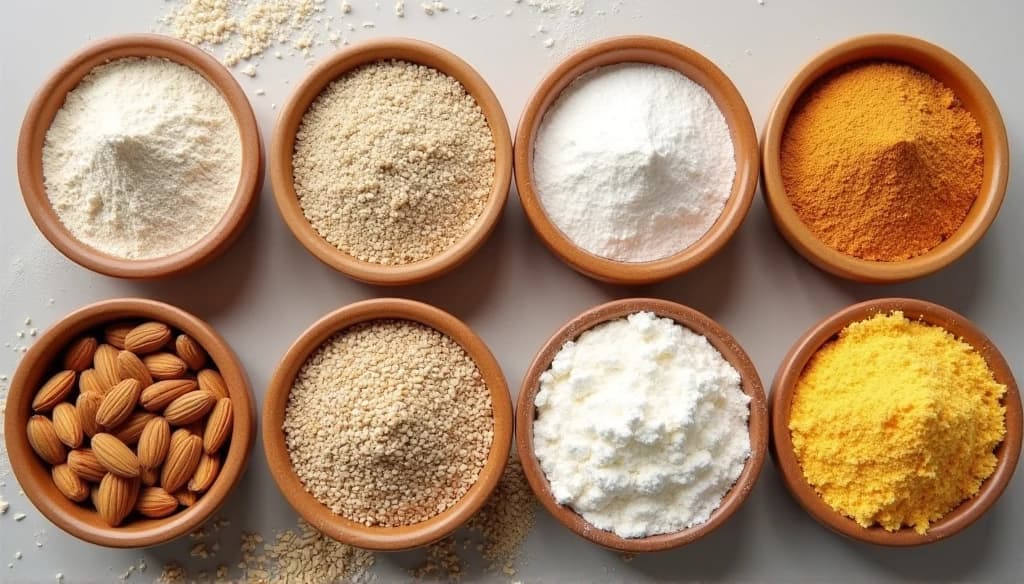
Not all flours are keto-friendly. Here’s a quick breakdown of which flours are OK and which to avoid:
Keto-Friendly Flours:
- Almond Flour
- Coconut Flour
- Flaxseed Meal
- Chia Seed Flour
- Sunflower Seed Flour
- Oat Fiber
- King Arthur Keto Flour
Flours to Avoid:
- All-Purpose Flour
- Whole Wheat Flour
- Cornmeal
- Rice Flour
The key is to look for flours with low net carbs (total carbs minus fiber).
Get your free keto Bread cockbook
Which Is the Lowest Carb Flour?
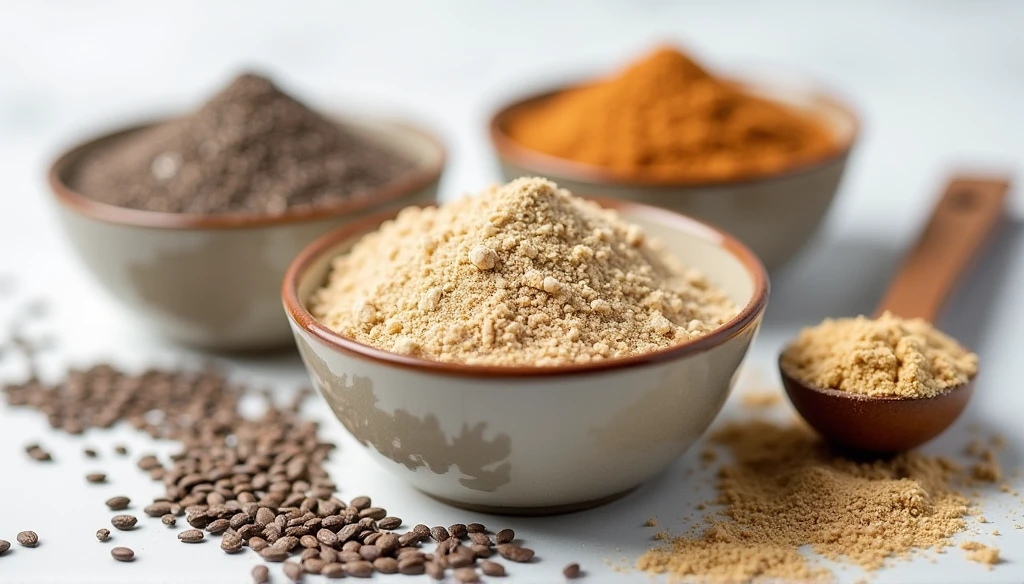
The lowest-carb flours include:
- Flaxseed Meal: 0g net carbs per ¼ cup.
- Chia Seed Flour: 1g net carb per ¼ cup.
- Oat Fiber: 0g net carbs per ¼ cup (pure fiber, no digestible carbs).
These options are great for recipes that require ultra-low-carb ingredients.
Keto Wheat Flour: What You Need to Know
Keto wheat flour is a relatively new product designed to mimic the texture and taste of traditional wheat flour. It’s made by combining wheat protein (gluten) with low-carb fibers and ingredients.
Best Option: King Arthur Keto Flour
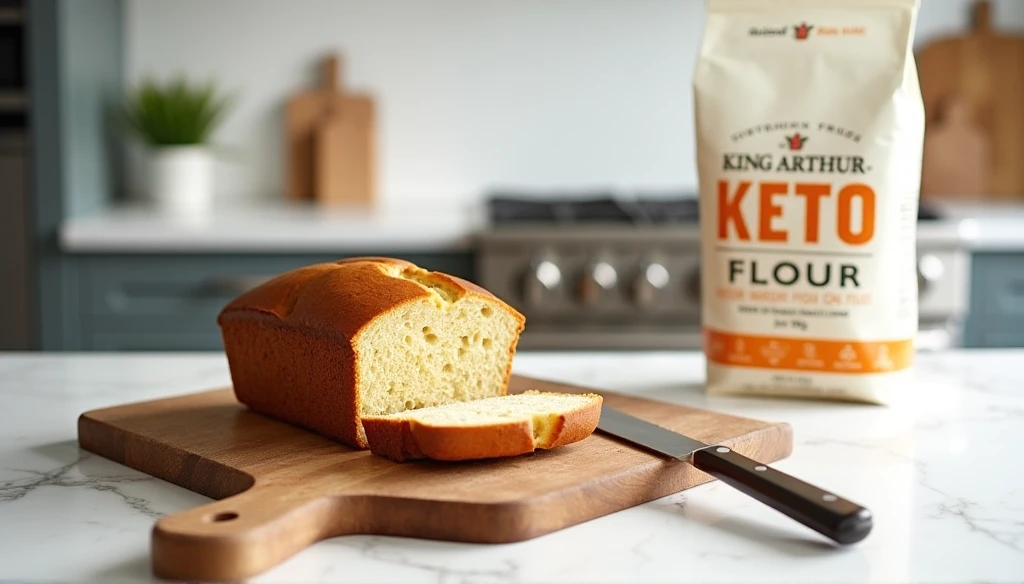
One of the most popular keto wheat flours is King Arthur Keto Flour, which contains only 4g net carbs per ¼ cup. It works well for bread, pizza crust, and other baked goods while closely resembling regular wheat flour in texture.
Keto Flour Substitutes: What to Use When You’re Out
Ran out of your favorite keto flour? Here are some great substitutes:
- For Almond Flour: Use sunflower seed flour or hazelnut flour.
- For Coconut Flour: Replace with a mix of almond flour and a small amount of psyllium husk to absorb moisture.
- For Oat Fiber: Use flaxseed meal or chia seed flour for similar bulk.
How Is Keto Flour Made?

Keto flours are made by grinding low-carb ingredients like nuts, seeds, or fibers into a fine powder. For example:
- Almond Flour: Made by grinding blanched almonds.
- Coconut Flour: Made from dried coconut meat after extracting the oil.
- Flaxseed Meal: Ground flaxseeds, which are naturally high in fiber.
Cheapest Keto Flour Options
If you’re on a budget, here are the most affordable keto flours:
- Flaxseed Meal (around $5 per pound): High in fiber and versatile.
- Coconut Flour (around $6 per pound): A little goes a long way, making it cost-effective.
- DIY Almond Flour: Buying raw almonds in bulk can save money in the long run.
Conclusion
Keto flour opens up a world of possibilities for creating low-carb versions of your favorite baked goods. Whether you’re looking for the best keto flour, the cheapest options, or how to make it at home, this guide has you covered. By understanding the ingredients, substitutes, and nutritional profiles, you can confidently incorporate keto flour into your diet without sacrificing flavor or texture.
So, what’s stopping you from baking that perfect keto bread or whipping up some guilt-free cookies? Give keto flours a try, and bring the joy of baking back into your low-carb lifestyle!
FAQs About Keto Flour
What Is the Best Keto Flour?
The best keto flour depends on your recipe. Almond flour is versatile, while coconut flour is ideal for moist baked goods. For convenience, King Arthur Keto Flour is a great all-purpose option.
Why Is Keto Flour So Expensive?
The high cost is due to specialty ingredients, lower production volumes, and higher nutritional quality compared to regular flour.
How Do You Make Keto Flour at Home?
You can make keto flour by grinding low-carb ingredients like almonds, coconut, or flaxseeds into a fine powder.
Which Is the Lowest Carb Flour?
Flaxseed meal and oat fiber have 0g net carbs, making them the lowest-carb flours.
What Flour Is OK on Keto?
Keto-friendly options include almond flour, coconut flour, flaxseed meal, chia seed flour, and King Arthur Keto Flour.

